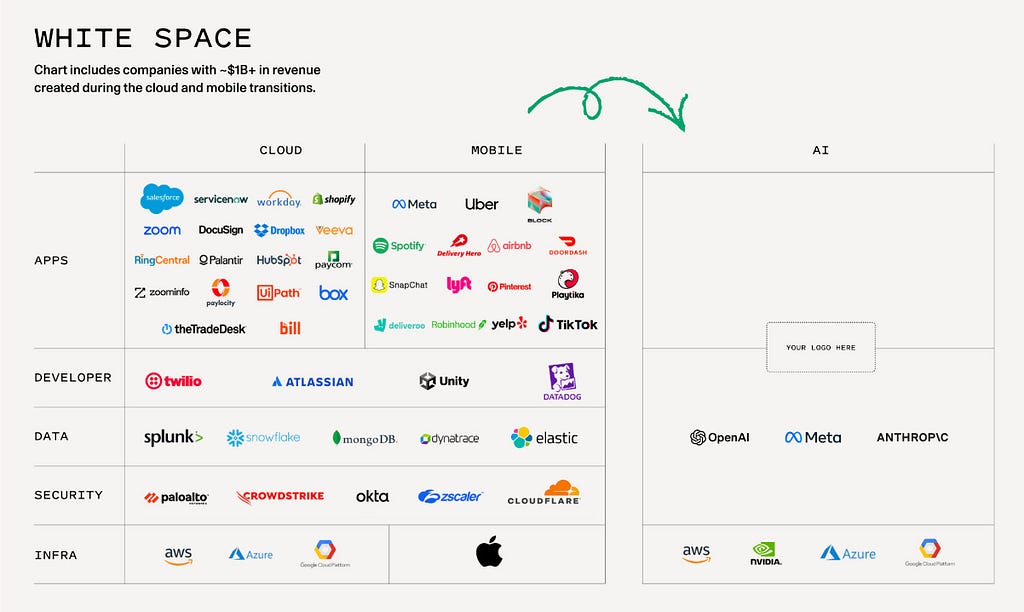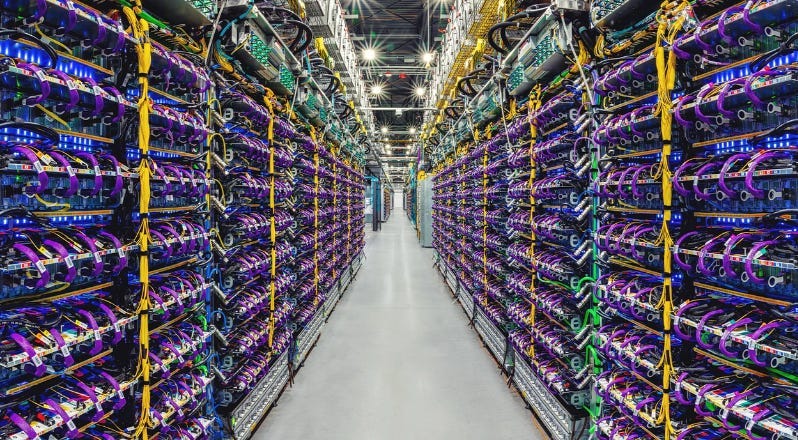Get in Front of 50k Tech Leaders: Grow With Us — Let Us Feature You.
If you’d like to unsubscribe, please look at the link at the bottom of this emailMonday is here, folks, and we’re diving into the future! Is AGI closer than we think? We explored that today, along with the booming data center industry, the heated debate around Embryo IQ screening, and — would you snap a picture of your poop to check your health? All this and more in today’s edition. Let’s dive in!
- What is AI’s Next Act?
- Elite Embryo IQ Screening Sparks Controversy.
- The Money is in Data Centers.
- 🧰 AI Tools (Developer Tools III)
- 📰 News and Trends.
What is AI’s Next Act?
Two years into the Generative AI revolution, the focus is shifting from rapid, pre-trained responses (“thinking fast”) to deliberate, reasoning-based AI (“thinking slow”). This evolution is opening doors for new applications that require problem-solving and deeper cognitive operations at inference time, as seen with OpenAI’s latest model, “o1” (formerly Q* or Strawberry).
Unlike traditional AI models, which rely on pre-training to predict the next token, “o1” uses inference-time compute to stop and think before responding. This mirrors AlphaGo’s approach to problem-solving, where it considered multiple scenarios before making a move. This capability allows AI to reason through more complex tasks, especially in logic-driven fields like coding and math.
As AI moves from “System 1” (instinctual responses) to “System 2” (deliberate reasoning), the next frontier for generative models is scaling reasoning capabilities for real-world applications. We’re seeing the rise of agentic applications — AI systems tailored to specific tasks, from AI lawyers (Harvey) to AI software engineers (Factory), transforming industries by automating skilled labor.

This shift could fundamentally reshape the tech landscape. While incumbents like OpenAI and Google dominate the foundational layer, there’s massive opportunity at the application layer, where AI-native startups are emerging with domain-specific reasoning systems. The next phase of AI won’t just be about automating tasks but solving complex, real-world problems with human-like reasoning — potentially changing the way businesses operate and services are delivered.
Our Partners:
- OpenVC University — Jumpstart your AI career in 100 days with OpenCV University’s AI Challenge — master AI, Computer Vision, and Deep Learning with a 35% discount!
- FRENZ Brainband by Earable — Silence your thoughts and drift into a deeper sleep. — AI-powered, scientifically-backed sleep tech transforming restless nights into restful slumber. Exclusive savings with code ‘celis’!*
- UPDF! — Unlock powerful PDF editing and secure your documents with UPDF — edit, sign, convert, and more on any device!
The Money is in Data Centers.

As the AI boom drives demand for cloud services, investors are increasingly turning to data centers for stable, long-term returns. With the global data center market projected to grow from $416 billion in 2024 to $624 billion by 2029, these facilities offer attractive yields of 5–12%. However, challenges include high environmental impact, significant operational costs, and complex infrastructure. Investors are exploring hyperscale data centers and real estate investment trusts (REITs) as key opportunities while also considering investments in components like processors and cooling systems to tap into this growing market.
🧰 AI Tools
Developer Tools III
- OpenAI Downtime Monitor — Free tool that tracks API uptime and latencies for various OpenAI models and other LLM providers.
- ChatWithCloud — CLI allows you to interact with AWS Cloud using human language inside your Terminal.
- SinglebaseCloud — AI-powered backend platform with Vector DB, DocumentDB, Auth, and more to speed up app development.
- Maxim AI — A generative AI evaluation and observability platform, empowering modern AI teams to ship products with quality, reliability, and speed.
- Wordware — A web-hosted IDE where non-technical domain experts work with AI Engineers to build task-specific AI agents. It approaches prompting as a new programming language rather than low/no-code blocks.
📰 AI News and Trends
- Mira Murati, the OpenAI CTO who announced her departure last month, is raising VC funding for a new AI startup that will focus on building AI products based on proprietary models and could raise more than $100 million (TC)
- Meta releases AI model that can check other AI models’ work (Reuters)
- Nvidia Boosts Meta’s Llama Model with New Training Approach, Improving AI Helpfulness and Response Quality, outperforming leading models like GPT-4 in certain tests (Decoder)
- Perplexity AI seeks a valuation of about $9 billion in new funding round (CNBC)
- The $14 Billion Question Dividing OpenAI and Microsoft. The two companies have hired investment banks to help negotiate how much equity Microsoft gets when OpenAI becomes a for-profit company (WSJ)
🌐 Other Tech news
- Musk offers voters $1 million a day to sign PAC petition backing the Constitution. Is that legal? (Yahoo)
- Crypto is still going strong. Stripe In Talks To Buy Crypto Startup Bridge For $1 Billion (Forbes)
- Praxis raised $525 million to build an internet-native city aimed at fostering tech and scientific innovation. The community spans 14,000 members across 84 countries, with founders of companies worth over $400 billion, Balaji dream may come true (CoinTelegraph)
- Throne’s toilet camera takes pictures of your poop and tells you what your waste is trying to tell you about your health (TC)
Elite Embryo IQ Screening Sparks Controversy.

Are we going overboard with AI, or is this just the beginning for apps that can make certain people very uncomfortable? A US startup, Heliospect Genomics, is offering to screen embryos for IQ, charging up to $50,000 for 100 embryos. The company’s controversial service uses genomic prediction, allowing parents to select embryos based on traits like intelligence, height, and mental health risks. While this technology is legal in the US, it raises significant ethical concerns about genetic enhancement and inequality. Critics warn it could normalize “superior” genetics, while supporters claim it could lead to healthier, smarter children. Heliospect is still in development, with plans to officially launch soon.
🔮What is AI’s Next Act? was originally published in The Capital on Medium, where people are continuing the conversation by highlighting and responding to this story.

 3 hours ago
13
3 hours ago
13







 English (US) ·
English (US) ·